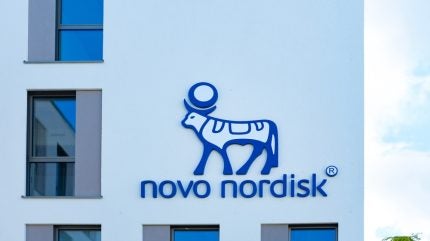
Novo Nordisk has cut its outlook for 2025 as lower expectations for glucagon-like peptide-1 receptor agonists (GLP-1RA) continue to hit the drugmaker.
Net profit for Q3 came in at Dkr20bn ($3.1bn), roughly in line with the DKr20.12bn forecast by Wall Street analysts. Net sales reached Dkr75bn, up 5% from the same period in 2024.

Discover B2B Marketing That Performs
Combine business intelligence and editorial excellence to reach engaged professionals across 36 leading media platforms.
However, the knock to investors came when Novo revealed it now expects sales growth of 8% to 11% at constant exchange rates (CER), compared to a previous forecast of 8% to 14%. While semaglutide brands Ozempic and Wegovy have long underpinned the company’s growth surge in previous years, their weaker outlook was the primary reason for the guidance cut. Semaglutide’s growth had already slowed in the first half of this year.
Novo’s CEO Maziar Mike Doustdar said: “While we delivered robust sales growth in the first nine months of 2025, the lower growth expectations for our GLP-1RA treatments have led to a narrowing of our guidance.”
Following the earnings release, shares in the Danish big pharma company opened at $47.96 on 5 November, down 2.34% from market close on 4 November. Novo has a market cap of $213.7bn.
The guidance change marks the latest adjustment Novo has made to its 2025 outlook as the company battles a changing market. Despite holding first to market advantage in the GLP-1RA space with semaglutide, Eli Lilly has surpassed Novo Nordisk’s market lead with tirzepatide, marketed as Mounjaro in type 2 diabetes and Zepbound in weight loss.

US Tariffs are shifting - will you react or anticipate?
Don’t let policy changes catch you off guard. Stay proactive with real-time data and expert analysis.
By GlobalDataGlobalData senior analyst Shehroz Mahmood says: “Novo Nordisk’s latest guidance reduction marks yet another setback this year as the company struggles against Eli Lilly’s surging tirzepatide franchise, which generated $10.1bn in Q3 to become the industry’s top revenue-generating drug by overtaking MSD’s Keytruda for the first time.”
Doustdar, who joined Novo as CEO in August 2025, has been tasked with turning the fortunes of the beleaguered GLP-1RA heavyweight around. One of his first major acts was cutting 11% of the company’s global workforce, translating to the loss of around 9,000 jobs.
Doustdar said: “Our company-wide transformation has already driven operational efficiencies, and we have a renewed focus that can deliver a range of potential treatment options that will serve millions more patients… We aim to accelerate on all fronts to be able to compete better in dynamic and increasingly competitive markets.”
One of these accelerations comes in the form of a bidding war to beat Pfizer to the acquisition of obesity biotech Metsera. On 4 November, Novo sent an updated offer of $10bn to buy the company that is developing long-lasting GLP-1RA treatments. The saga has resulted in lawsuits filed by Pfizer, with Novo remaining steadfast in the legality of its approach.
Mahmood adds: “Novo’s aggressive pursuit of Metsera in a bidding war with Pfizer underscores management’s recognition that organic growth alone cannot counter Lilly’s dominant execution, though securing Metsera’s ultra-long-acting GLP-1RA platform with its potential for monthly dosing could provide Novo with the differentiated assets needed to regain competitive footing in the evolving obesity treatment landscape.”
Novo already outlaid $5.2bn to buy Akero Therapeutics last month, signalling a push into the lucrative metabolic dysfunction-associated steatohepatitis (MASH). At the time, Doustdar said Akero’s lead drug could become a “building block” for strengthening the company’s top line.
Despite a difficult year, Novo reached a small respite on the same day it announced its Q3, announcing it had struck a Medicare price deal for semaglutide. The price of GLP-1RAs has been a constant pressure point in the US, with weight loss medication a particular focus of President Donald Trump amid his drug pricing reforms.
Mahmood comments: “While the Medicare pricing agreement for semaglutide appears favourable, lower growth expectations for semaglutide highlight how quickly Novo has lost momentum in the obesity market it pioneered.”




